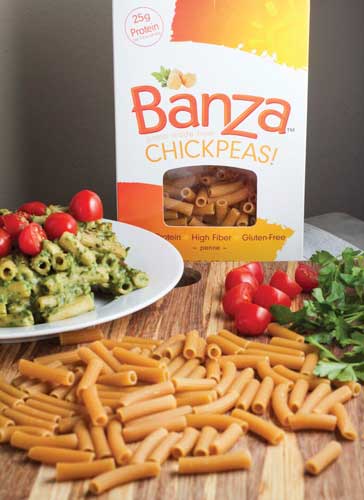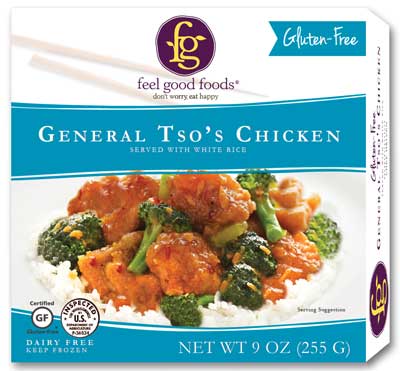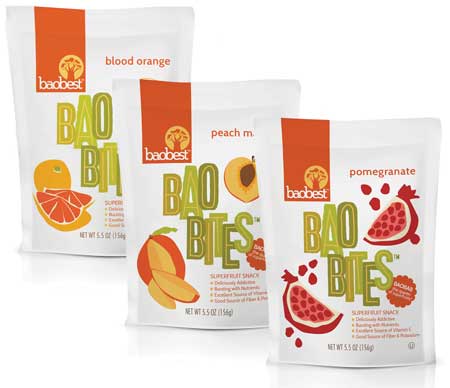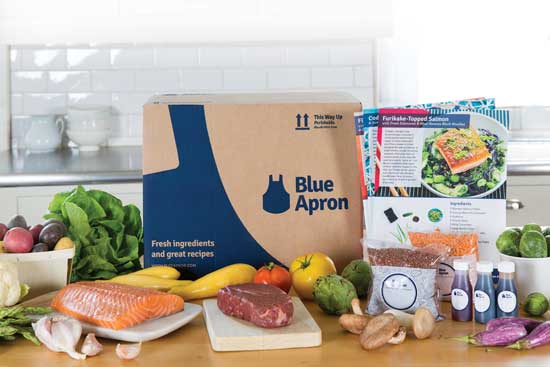The Rise of Food Renegades
With financial support from Silicon Valley and a growing distrust of ‘Big Food’ by Millennials, entrepreneurial companies are disrupting the food chain through product innovation, storytelling, and home delivery services.
Article Content

For Zach Grannis, who leads business development for crowdfunding platform CircleUp Network Inc., San Francisco, a clue into a valuable investment strategy came in the form of a special report in Fortune. From the article published last May and titled “Special Report: The war on big food,” he learned that the equivalent of $18 billion in market share had moved from mass food brands to smaller rivals since 2009.
“A lot of that was driven by a fundamental shift from what my parents and grandparents purchased from legacy companies like General Mills and Proctor & Gamble to small startups that captured a lion’s share of consumers,” Grannis declares. “The younger generations want a more personalized experience.”
The market forces supporting the emergence of these disruptive food companies or renegades is driven by a large pool of Silicon Valley investors and resources like incubators and accelerators with an interest in food. CircleUp exists as one of those platforms with a rule that they won’t invest in tech or Internet companies, but only organizations that have a tangible product that consumers can touch, taste, and is sold on the shelf or online. These are the characteristics that new brands use to pique interest from members of the investment community.
Millennials and Moms
Driving the cultural shift to smaller brands are Millennials, who represent a quarter of the U.S. population and who are the most culturally diverse. With their smartphones and quick access to Google and blogs to investigate any company or ingredient, they’ve all but created a whole new type of food customer. While younger Millennials may still be going through college and waiting to get their feet on the ground before getting married, market researcher Mintel reports that older Millennials are starting families and gaining greater incomes and increasingly more influence over food trends.
Recent research from Mintel (2015a) indicates that 43% of Millennials do not trust large food manufacturers, compared to only 18% of non-Millennials. Similarly, nearly three quarters (74%) of Millennials want food companies to be more transparent about their products. “With growing distrust and a greater desire for transparency from food manufacturers, Millennials want brands to form a genuine, authentic connection with them,” notes the research report.
One brand that serves as an example of how small companies are capturing the attention of Millennial moms is Pure Spoon—a maker of organic food purées for children. Founder Alyson Eberle has used social media and blogs to market her own story. After becoming a mom herself, she sold her 15-year-old education business and sought out the means of investing in innovative packaging and high-pressure processing (HPP) pasteurization technology to provide “fresh” baby food products that are not heat treated. She says that her company’s ability to compete with mass brands like Gerber is the difference in the taste and nutrition. Her company, which is itself still in its infancy, has now catapulted in growth since being picked up by big grocery retailers like Whole Foods, Target, Fairway, and Sprouts.
“The idea of Pure Spoon came about when I had my daughter and I made all of her food at home, which, as every parent knows who has done this, is a lot of work and time,” Eberle says. “But because there was not a fresh option available, my choice was to keep making it or settle for a product offered in a pouch or jar that sits on shelves at room temperature for months at a time. So I decided to take on the established brands and give parents a better, fresher, less-processed, more nutrient-packed option. I think that resonates well with parents who want the best for their kids.”
 Disrupt to Create Trust in the Grocery Aisle
Disrupt to Create Trust in the Grocery Aisle
The growing consumer demand for foods from disruptive food companies has not gone unnoticed by major retailers and they are changing their assortments on the shelf to include more products from smaller brands. “It comes down to trust,” says Brian Rudolph, cofounder of Banza, Detroit. “At minimum, we can’t help but be skeptical of the companies that feed us. A few food companies have opted for ingredients that are refined and cost effective. Unfortunately, those ingredients are also often addictive and less filling. Portion sizes and caloric intake are up. Obesity and diabetes rates are through the roof.”
Consumers who are increasingly health-conscious are intrigued about Banza because of Rudolph’s own story. One of Rudolph’s favorite foods is pasta, which most people overdo on portion size. So he started to make his own higher protein, higher fiber chickpea pasta by hand in his kitchen. “At some point it hit me that if this creation in my kitchen solved my desire for a better pasta, it might also solve someone else’s,” Rudolph notes. That’s when Rudolph decided to reach out to his brother Scott, who was an investment banker and broker. They built the new company, complete with Brian Rudolph’s founder’s story on its website, to battle the large pasta brands.
 Small companies also have the advantage of being nimble about their formulation, labels, and packaging. “It’s a luxury that most big companies don’t have,” said Vanessa Phillips, cofounder and CEO of Feel Good Foods, Santa Cruz, Calif., a company that offers gluten-free dumplings and egg rolls. Part of the company’s story is the founder’s own need to go gluten free. “Our story is on our packaging and when customers read it, it resonates with them,” she says.
Small companies also have the advantage of being nimble about their formulation, labels, and packaging. “It’s a luxury that most big companies don’t have,” said Vanessa Phillips, cofounder and CEO of Feel Good Foods, Santa Cruz, Calif., a company that offers gluten-free dumplings and egg rolls. Part of the company’s story is the founder’s own need to go gluten free. “Our story is on our packaging and when customers read it, it resonates with them,” she says.
Chef Tryg Siverson, cofounder and COO of Feel Good Foods, adds, “We are constantly listening to customers’ requests. We respond to each request and take every suggestion into account. For example, our gluten-free dumplings used to contain soybean oil. After getting some suggestions asking for the soybean oil to be replaced by canola oil, we made the switch. Many large food companies use preservatives, have a long list of ingredients, and are not offering restaurant-quality meals to the frozen market. As a new company on the scene, we are aiming to change the perception of frozen food.”
Social Change through Food Ingredients
Consumers’ growing social consciousness and interest in food company ethics are other major drivers of the move from “Big Food” to upstart brands.
Some companies are attracting the attention of engaged consumers through use of ingredients that are attached to a greater ethical mission. In other words, rather than focusing on nutrition or weight loss, they instead talk about social responsibility or a social mission in their marketing such as reducing world hunger, saving the rainforests, or animal welfare.
In some cases, a single ingredient can make up the whole marketing strategy of a product as long as the connection is there to a social cause, particularly one that traditional food companies cannot provide through existing products. Stephen Broburg, general manager of Baobab Foods, Bellevue, Wash., says that one of the reasons customers are interested in organic, raw baobab powder and BaoBites Superfruit Snacks is due to the company’s dedication to help create a sustainable income for women in southern Africa.
 “We’ve pioneered best-practice forestry techniques with our partners, including techniques like hand-harvesting from wild trees,” Broburg explains. “In addition, our commitment to working with local harvesters creates sustainable incomes for women in southern Africa, providing opportunities to help uplift themselves from poverty with fair living wages to, in turn, feed their families and gain access to medical care and education for their children.” Now Baobab Foods is finding that other food companies increasingly want to integrate their baobab powder into new food and beverage formulations.
“We’ve pioneered best-practice forestry techniques with our partners, including techniques like hand-harvesting from wild trees,” Broburg explains. “In addition, our commitment to working with local harvesters creates sustainable incomes for women in southern Africa, providing opportunities to help uplift themselves from poverty with fair living wages to, in turn, feed their families and gain access to medical care and education for their children.” Now Baobab Foods is finding that other food companies increasingly want to integrate their baobab powder into new food and beverage formulations.
Taking ethics to a new level of disruption is Entomo Farms, Norwood, Ontario. Their sustainability-focused protein product may be hard for some consumers to swallow—considering that it’s from insects. Founder Jarrod Goldin said he got started making insect protein after reading a white paper (2013) from the Food and Agriculture Organization (FAO) of the United Nations titled “Edible insects: Future prospects for food and feed security.” Goldin had already been a supplier of insects like crickets and mealworms for the reptile industry, but never did it occur to him to produce a human-grade product. In February 2014, with about a million dollars contributed by angel investors, family, and friends, Goldin invested in large-scale dehydration and grinding technology to turn wet crickets and mealworms into either a coarse or dry powder.
Goldin began with about 5,000 square feet in what are essentially refitted chicken barns to produce a human-grade product. The company became the first human-grade insect farm in North America. It’s not the only one now, but it’s by far the largest one, according to Goldin, and the only one that produces products that are certified organic by the USDA. In two years the company has expanded the facility to 60,000 square feet and is looking to add another 40,000 square feet to meet demands internationally.
“Like Uber has disrupted the taxi business and Airbnb has disrupted travel, insects are disrupting the food industry, specifically the protein industry,” Goldin declares. “If you’re interested in a healthier, sustainable lifestyle, this protein is the solution for you. There’s no protein more sustainable for the planet.”
A quarter of consumers in the U.S. say that they are “frequently influenced by a company’s ethics,” according to a Mintel report (2015b) The Ethical Consumer - US - July 2015. However, ethics don’t necessarily translate to greater sales unless there’s enough availability and the price is right. In addition, there is a lot of confusion surrounding what ethical claims actually mean (e.g., Fair Trade) and how much value there is in seeking them out. Consumers also might have conflicting ideas about what is ethical, such as whether or not a company supports gay marriage or is dedicated to traditional Christian values.
A company’s size alone might also hurt the ethical image of a company, as well as make it a target. Big companies might have to make the extra effort to convince their consumers that they are ethical, Mintel reports. Consumers often find that it’s easier to punish a big “bad” company versus rewarding a “good” company. So it’s imperative for companies—both big and small—to stay in tune with what their own customers find is ethical and have a clear marketing message that can boost its image. The Internet age can make it “extremely difficult” to cover up any missteps or ethical blunders, Mintel reports. Repairing the relationship with consumers in this modern age of food-engaged consumers might mean owning up to any mistakes and describing in detail what the company will do to change for the better in the future.
Delivering Fresh Disruption to Your Door
Moving beyond packaged and frozen foods, other companies are gaining market share from mainstream food firms through their production and delivery of fresh, local foods and ingredients. Through urban farming or unique ways of sourcing groceries from local farms, these companies have discovered yet another way to change the food industry landscape.
 “Consumers are increasingly seeking more transparency, integrity, and sustainability on how, where, and by whom their food is produced,” according to Viraj Puri, cofounder and CEO of Gotham Greens, New York City. When Gotham Greens started in 2009, it was the first commercial scale urban-based agribusiness of its kind in the U.S. Six years later, the company has designed, built, and now operates more than 170,000 square feet of advanced controlled-environment greenhouse space across four facilities in both New York City and Chicago.
“Consumers are increasingly seeking more transparency, integrity, and sustainability on how, where, and by whom their food is produced,” according to Viraj Puri, cofounder and CEO of Gotham Greens, New York City. When Gotham Greens started in 2009, it was the first commercial scale urban-based agribusiness of its kind in the U.S. Six years later, the company has designed, built, and now operates more than 170,000 square feet of advanced controlled-environment greenhouse space across four facilities in both New York City and Chicago.
“What we do at Gotham Greens—design, build, and operate state-of-the-art, renewable energy powered, climate controlled, urban greenhouses and purvey premium quality, locally grown produce, year-round—is certainly disruptive,” Puri says. “But what has made our business profitable and viable is the consistent, reliable quality of the produce and our business operations and not just the disruptiveness in of itself.”
 New food delivery services also are playing a role in bringing change to the food system. Seeking to transform the way people eat is master chef Matt Wadiak, venture capitalist Matt Salzberg, and engineer Ilia Papas, who founded Blue Apron, New York City, in 2012. The company delivers farm-fresh ingredients directly to consumers’ homes, complete with step-by-step preparation and cooking instructions.
New food delivery services also are playing a role in bringing change to the food system. Seeking to transform the way people eat is master chef Matt Wadiak, venture capitalist Matt Salzberg, and engineer Ilia Papas, who founded Blue Apron, New York City, in 2012. The company delivers farm-fresh ingredients directly to consumers’ homes, complete with step-by-step preparation and cooking instructions.
With original recipes provided weekly, Blue Apron promises customers will be cooking like pros in no time. The company also boasts having a close relationship with farmers they source from who harvest at peak freshness and keep transit time to a minimum. It’s all in an effort to improve the health and lifestyle of their “home chefs.” A little help in delivering products nationwide came in the form of $135 million in funding from Fidelity Management and Research Co., according to FastCompany. Blue Apron has seen quite a bit of growth over the past three years, now delivering up to 5 million meals a month.
One of Blue Apron’s rivals is HelloFresh, which secured funding of $126 million from Rocket Internet and Insight Venture Partners in 2015. Unlike Blue Apron, the company doesn’t make it a point to market their relationship with specific farmers or improve sustainable practices. At HelloFresh it’s all about health and wellness, portion control, and balanced nutrition. Last November, HelloFresh shipped more than 6 million meals to customers is seven countries, including the U.S., UK, Australia, Northern Ireland, and Germany. The company has partnered with celebrity Chef Jamie Oliver to offer some of his healthy meal recipes.
Green Chef, Boulder, Colo., differentiates itself in the home delivery sector by offering USDA-certified organic meal kits ranging from 450–750 calories per serving. The company also caters to specialized diets, such as vegetarian, Paleo, and gluten free.
The global meal kit delivery market topped $1 billion in 2015 and is expected to surpass $10 billion by 2020, according to a report (2016) from market researcher Technomic. “This market initially gained traction overseas, but today the U.S. represents nearly 40% of the global market,” says Erik Thoresen, principal at Technomic. “We project the fresh food subscription market in the U.S. alone will grow to a multi-billion dollar market over the next five years. This growth is fueled by growing consumer acceptance of the subscription service model, as well as a strengthening food culture within the mainstream market.”
Funding Future Change
With plenty of investors ready, willing and able to take a risk, the business climate is very favorable to food entrepreneurs. “We’ve been fortunate to have a great set of visionary investors who see the tremendous potential in our products,” says Arturo Elizondo, cofounder of Clara Foods, San Francisco. “Their investment has allowed Clara to hire an amazing team of scientists and innovators to ultimately accelerate our process and have that impact we seek.”
Funded by biotech accelerator IndieBio, also based in San Francisco, Clara Foods doesn’t have a product yet. But their marketing campaign is already set. In the case of Clara Foods, it’s about disrupting how consumers use eggs. Their future product is egg whites produced via yeast technology in the lab; no chickens are required. “With our products, we can not only match, but enhance an egg whites’ unparalleled functionalities, enabling the creation of new kinds of foods. Imagine the fluffiest and lightest meringues and angel food cakes you’ve ever had,” Elizondo explains.
But it’s not just eggs; it’s about “reimagining the kitchen’s most critical ingredients” in a way that will be better for people, animals, and the planet, he says. “We all want authenticity. More and more, consumers want to use their dollars to contribute to a mission. They want a company to stand for something more than just profits. Whether it’s fair-trade coffee, vegan cookies, or environmentally friendly palm oil, people are realizing that our everyday choices have consequences that extend far beyond what we imagined––especially in food,” he says.
FaB Wisconsin, Milwaukee, has been focused on securing funding to accelerate growth for new food and beverage manufacturers since 2002. FaB works in collaboration with the Food Finance Institute at the University of Wisconsin Extension and the Wisconsin Economic Development Corp. Their FaBcap program is designed to help build the capacity and capitalization for up to 10 food and beverage companies annually through training, mentoring by other food companies, and $10,000 in funding.
Another support organization is Good Food Business Accelerator, part Chicago’s innovation hub 1871, which is dedicated to connecting farm and food businesses with investors and industry leaders for scaling up production. Applicants that are accepted by Good Food Business Accelerator are given mentoring, strategic support, and access to capital for the sake of building “a supply chain for sustainable local food.” The accelerator is owned by FamilyFarmed, which is a nonprofit organization that has a strong relationship with Whole Foods and UNFI, as well as Chipotle Mexican Grill, and other companies.
San Francisco-based CircleUp’s crowdfunding platform attracts accredited investors by allowing them multiple investment opportunities at a lower investment minimum. The investors have access to CircleUp’s community by joining a “Circle.” Circles may be led by individual members of the CircleUp community with industry experience or by a lead investor. Last November, The Wall Street Journal reported that CircleUp had raised $30 million for funding food startups specifically. “We exist as a marketplace that connects high-growth consumer goods and retail brands with capital and a lot of that is driven by a fundamental market shift in those categories,” says Grannis.
CircleUp has invested in companies that include SmartyPants Vitamins, Venice, Calif., a natural supplement company that capitalizes on a close relationship with Amazon.com; Artís Coffee, San Francisco, a coffee company that gives consumers the experience of seeing coffee beans roasted right in front of their eyes in their cafés; and Rhythm SuperFoods, Austin, Texas, a maker of nutrient-dense plant-based snacks that feature kale and broccoli.
Recently, General Mills, Minneapolis, took a lead investor role in Rhythm Superfoods through its venture capital arm 301 INC. General Mills launched 301 INC to focus on building partnerships with emerging, disruptive brands. Notably, 301 INC has invested in Beyond Meat, El Segundo, Calif., to develop plant-based proteins that have the taste and texture of real meat. In January, General Mills acquired EPIC Provisions, LLC, Austin, Texas, a maker of meat-based protein bars. The new addition will now operate as part of the company’s Annie’s business, which Generals Mills purchased for $820 million in 2014.
A New Renegade Culture
In an era where traditional food brands are being challenged by these renegades, “consumers are becoming more engaged and more powerful in the ‘World of Food.’ Foods and beverages are content—cultural products to be shared, discovered, made, and traded,” says Laurie Demeritt, CEO, The Hartman Group. “We’re living in an era defined by a cultural redefinition of food quality. Fresh, real, and less processed are the new symbols of food quality today.” Millennials are seeking out foods made with premium distinctions including natural ingredients, non-GMO, organic, allergen-free, and locally grown or manufactured, says Demeritt.
According to the Culture of Food 2015 report from The Hartman Group (2015), consumers are increasingly trading out mass food brands and chains for unique, local, and fresh food experiences. They expect higher quality and want to be closer to their food—knowing where it comes from and who made it.
Small food startups are in tune with this new food culture, telling engaging stories about their products, their ingredients, and how they’re made. These renegades, which are disrupting the food system, all share a few distinct qualities, says Grannis. “They have a differentiated product with a founder’s story that is clearly positioned, often with a social impact, and they have a business that’s uniquely positioned with a supply chain that makes them able to compete with the big guys,” he says.
David Despain, a member of IFT, is a freelance writer and nutritionist based in Gilbert, Ariz. ([email protected]).
References
FAO UN. 2013. “Edible insects: Future prospects for food and feed security.” Food and Agricultural Organization of the United Nations, Rome. http://www.fao.org/docrep/018/i3253e/i3253e.pdf
Hartman Group. 2015. Culture of Food 2015. The Hartman Group, Bellevue, Wash. hartman-group.com.
Kowitt, B. 2015. “Special Report: The war on big food.” Fortune. Time Inc., New York City. May 21. fortune.com.
Mintel. 2015a. The Millennial Impact: Food Shopping Decisions - US - September 2015. Mintel, Chicago. mintel.com.
Mintel. 2015b. The Ethical Consumer - US - July 2015.
Technomic. 2016. Understanding Fresh Food Subscription. Technomic, Chicago. technomic.com.
